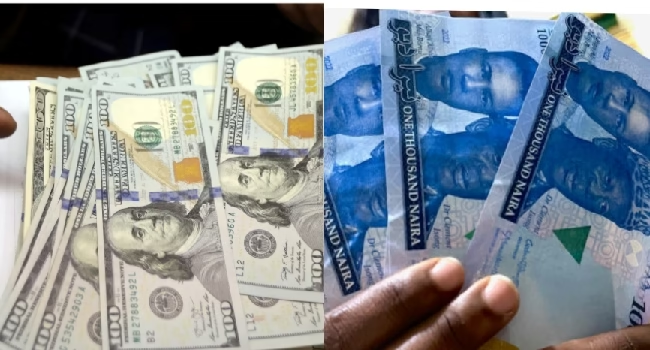Naira exchange rate gains 0.72% to close at ₦1,455/$ amid strong FX inflows, portfolio investments and rising external reserves, says CBN
Naira exchange rate gains continued last week, with the domestic currency appreciating by 0.72 per cent at the official market to close at ₦1,455.17/$, its strongest level since December 2024, according to fresh data from the Central Bank of Nigeria (CBN).
Also read: INEC voter registration data reveals regional surge
Analysts attributed the naira’s steady rise to robust foreign exchange inflows, particularly from portfolio investors and remittances, which helped ease pressure on demand and boosted market sentiment.
The parallel market also reflected this trend, with the naira appreciating 0.88 per cent to trade at ₦1,475/$, further underlining improved liquidity conditions.
The foreign exchange market experienced mixed activity throughout the week. Early exits by foreign portfolio investors led to temporary depreciation; however, by midweek, strong FX inflows—especially from investors sourcing naira for fixed-income commitments—restored confidence.
In its outlook, AIICO Capital projected that the naira would remain relatively stable in the near term, citing steady US dollar supply and strengthening external reserves.
Cowry Assets Management echoed this view, pointing to increased FX liquidity and supportive CBN interventions.
Nonetheless, both firms cautioned that rising import demand or any weakening in FX inflows could slow further gains.
Nigeria’s external reserves rose to $42.57 billion, bolstered by higher oil receipts, diaspora remittances, and foreign investments.
The CBN is now better positioned to manage near-term volatility and uphold stability in the exchange rate.
In a further boost to investor sentiment, FTSE Russell in its September 2025 review added Nigeria to its Watch List for potential reclassification from an “Unclassified” to a “Frontier Market”.
The shift reflects improved FX liquidity and the recent policy reforms which have eased capital repatriation issues that previously excluded Nigeria.
The global index provider noted that Nigeria now meets all five FTSE Quality of Markets criteria.
Analysts at Meristem Securities described the move as a positive signal to global investors.
Active funds are expected to start pre-positioning, while passive funds prepare for potential allocation ahead of the next FTSE review in March 2026.
This reclassification watch is expected to attract significant foreign portfolio investments (FPIs) over the coming year.
Also read: INEC voter registration data reveals regional surge
These inflows are likely to support further gains for the naira, increase FX liquidity, and boost market stability—provided the Nigerian government remains committed to maintaining a market-driven economy.
